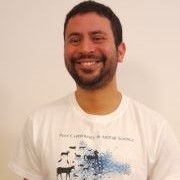Replay du webinaire du 02.05.24
Depuis plusieurs années, on assiste à une disparition progressive de certaines données dans les publications scientifiques (Fanelli et al., 2012). C'est le cas notamment des "résultats négatifs", dont le partage est pourtant crucial pour éviter les répétitions inutiles, et des données "non-originales" qui, en témoignant de la reproductibilité des études, sont tout aussi indispensables pour asseoir la robustesse de la recherche scientifique. Ces dérives posent de nombreux problèmes au niveau scientifique puisque l'on assiste à une "crise de la reproductibilité" (Becker et al., 2016), mais aussi au niveau éthique, dans le cas de financements publics ou de recherches sur animaux. Le système de publication scientifique doit évoluer vers des pratiques qui favorisent la libre diffusion et le plein accès aux résultats de la recherche pour garantir la transparence et la reproductibilité, tout en permettant d'éviter les répétitions inutiles.
In this webinar, Rafael Munoz-Tamato (Inrae) will introduce the Peer Community In (PCI) Animal Science initiative, which represents an alternative to the current publication system under the umbrella of the “Peer Community In” project. PCI Animal Science is an international community of researchers in animal science and related areas that promotes open science, research transparency, and bibliodiversity. Although PCI Animal Science is not a scientific journal, it operates similarly to traditional peer-review journals with editors (here: recommenders) and reviewers. Currently, the PCI Animal Science community has 72 recommenders from 24 countries, and the community’s interest to have their work submitted to and reviewed by PCI Animal Science has increased steadily. PCI Animal Science is a non-profit initiative managed by researchers. It performs, at no cost, rigorous open reviews of preprints deposited on repositories such as bioRxiv and Zenodo from a wide range of research areas related to animal science. Based on independent reviews, a recommender decides whether a paper is recommendable or not. Recommended preprints are peer-reviewed and citable stand-alone articles of high scientific value that do not need publication in traditional journals. However, if the authors wish, they can publish their recommended preprint in the Diamond Open Access Peer Community Journal at no cost. Authors can also submit their recommended manuscript to PCI-friendly journals (i.e., journals that consider the PCI evaluation in their own review processes) or to other journals. This contribution shows the workflow of the evaluation of manuscripts by PCI Animal Science and the advantages of adopting this new publishing model.
Marc Le Bert (GIS FC3R), présentera la plateforme FC3R Short Notes, un outil novateur développé par le FC3R visant à diffuser des résultats scientifiques, qu'ils soient positifs, négatifs ou non concluants, encore non publiés. La plateforme, gratuite et ouverte à tous, permet de soumettre - et de consulter - des données scientifiques jusqu'ici non visibles, sous la fome d'articles courts (2 000 mots et 2 figures) rédigés en anglais. Sont éligibles les études originales ou les répétitions - menées sur animaux ou sur modèles substitutifs - avec tous types de résultats : positifs, négatifs ou non concluants. Chaque Short Note est soumise à un processus rapide d'évaluation et de validation par deux relecteurs sur quatre critères de qualité : la rédaction, les figures, la description des protocoles et la conception expérimentale. Cette évaluation privilégie la qualité plutôt que des facteurs tels que la nouveauté, l'importance perçue ou l'impact scientifique. Après acceptation, la Short Note est publiée sur le site du FC3R et sur HAL, et un numéro d’identification numérique (DOI) lui est attribué afin d'accroître sa visibilité. Les données d'une FC3R Short Notes restent librement disponibles pour une soumission future à une revue à comité de lecture. La plateforme de Science Ouverte FC3R Short Notes a pour ambition de renforcer la robustesse de la recherche et de diminuer à la fois l'utilisation d'animaux et de produits dérivés d'animaux dans la recherche, en offrant de la visibilité à des résultats et protocoles non publiés, s'alignant ainsi sur la philosophie des 3R : Remplacement, Réduction et Raffinement de l'utilisation des animaux à des fins scientifiques.

Rafael Muñoz-Tamayo
Rafael Muñoz-Tamayo is researcher and Deputy Director of the Systemic Modelling Applied to Ruminants (MoSAR) team from the French Institute for Agriculture, Food and Environment (INRAE). Rafael has a bachelor degree in chemical engineering and a Master of Science in automatic control at Universidad Nacional de Colombia. He has a PhD degree in applied mathematics from Université Paris-Saclay. Rafael is a mathematical modeller of biological systems. His research motivation is to develop a quantitative understanding of biological processes using modelling to combine and structure information across disciplines. Rafael’s current research project aims to enhance understanding of the dynamic interplay between the diet, the rumen microbiota and the ruminant animal via an interdisciplinary approach that gathers a solid scientific network covering microbiology, chemistry, thermodynamics, bioprocess engineering, animal nutrition, computational biology and mathematical modelling. The ultimate goal is to provide mathematical models that help the design of nutritional strategies for sustainable ruminant production. Rafael has more than 40 scientific publications. He is member of the scientific board of the journal Animal. Rafael is strongly engaged in promoting open science practices and leads the international open science initiative Peer Community In Animal Science.

Marc Le Bert
Chargé de missions "Ingénierie de Projets 3R" & "Dépôt de résultats non publiés" au GIS FC3R
Expert en génétique et modèles inflammatoires murins, Marc Le Bert est ingénieur de recherche au CNRS et travaille depuis 2022 comme chargé de mission au GIS FC3R. Il est responsable de l’axe « résultats négatifs » avec la création de la plateforme des Short Notes du FC3R, une plateforme académique ‘Open Science’ et ‘Peer review’ gratuite, qui permet de rendre visibles et aisément accessibles les résultats non publiés qu’ils soient négatifs ou positifs. L’édito Lorier de mars 2024 replace cette initiative dans le contexte de la crise de la reproductibilité rencontrée en sciences.
 Retour
Retour